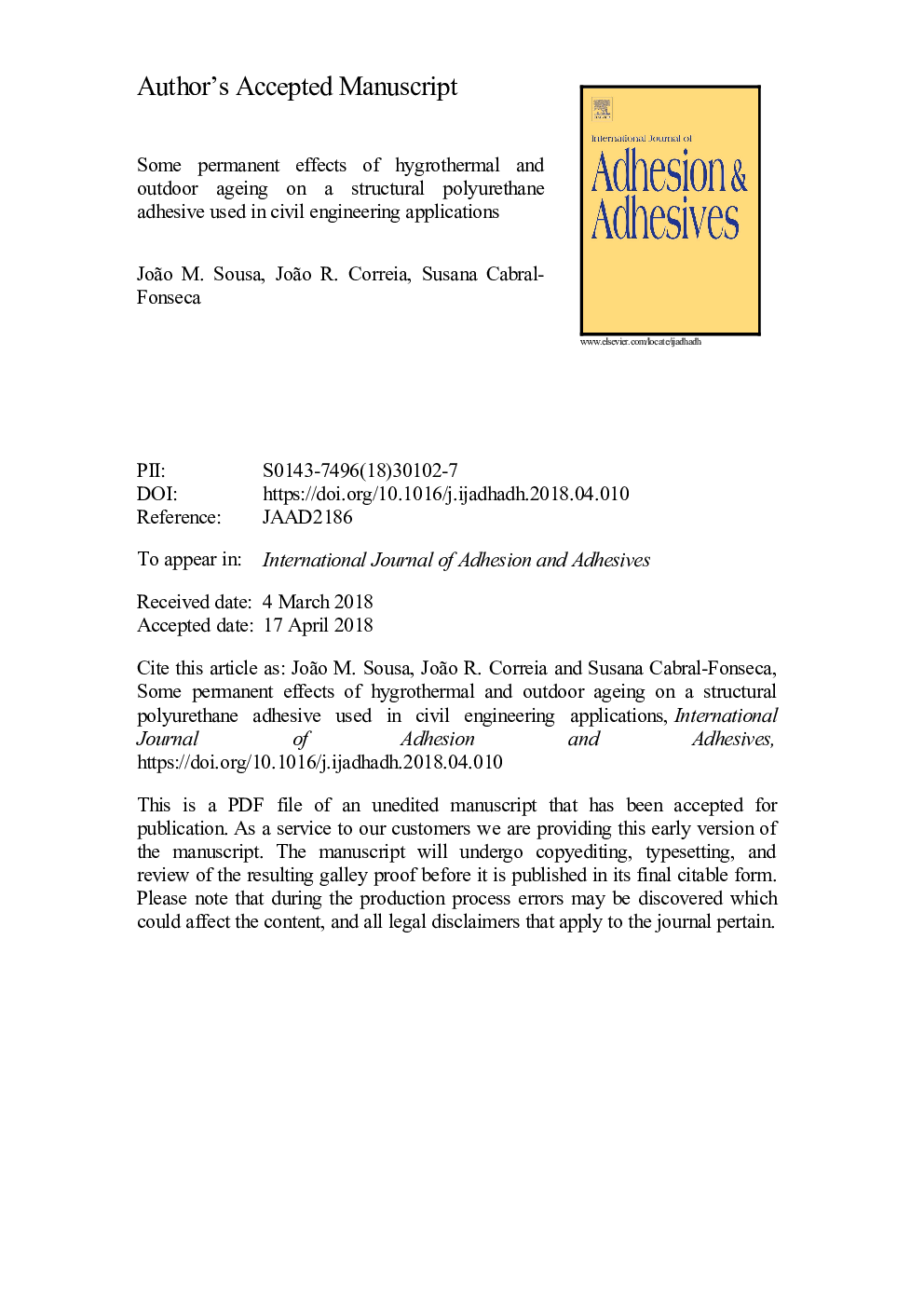| کد مقاله | کد نشریه | سال انتشار | مقاله انگلیسی | نسخه تمام متن |
|---|---|---|---|---|
| 7170925 | 1463453 | 2018 | 34 صفحه PDF | دانلود رایگان |
عنوان انگلیسی مقاله ISI
Some permanent effects of hygrothermal and outdoor ageing on a structural polyurethane adhesive used in civil engineering applications
ترجمه فارسی عنوان
برخی از اثرات دائمی پیری هیروترمال و بیرونی بر چسب های پلی اورتان ساختاری مورد استفاده در برنامه های مهندسی عمران
دانلود مقاله + سفارش ترجمه
دانلود مقاله ISI انگلیسی
رایگان برای ایرانیان
کلمات کلیدی
طول عمر چسب ساختاری، پلی اورتان، پیری گرمازا، پیری در فضای باز،
موضوعات مرتبط
مهندسی و علوم پایه
سایر رشته های مهندسی
مهندسی مکانیک
چکیده انگلیسی
This paper presents an experimental study about the effects of hygrothermal and outdoor ageing on a polyurethane (PUR) adhesive used in civil engineering applications. Small-scale adhesive coupons were exposed to different types of ageing environments for up to two years: (i) immersion in demineralised water at 20 and 40â¯Â°C, (ii) immersion in salt water at 20 and 40â¯Â°C, (iii) continuous condensation environment at 40â¯Â°C, and (iv) outdoor ageing in Lisbon, Portugal. At predetermined times, after a desorption period until constant mass, the effects of such exposure on the physical and mechanical responses of the PUR adhesive was investigated using the following techniques: (i) water sorption, (ii) dynamic mechanical analyses (DMA); (iii) flexural; and (iv) in-plane shear tests. The diffusion mechanisms observed were not purely Fickian; a long relaxation period was noticed, with water molecules being continuously incorporated in the adhesive until the end of the experiments; two alternative analytical modelling approaches were successfully used to simulate the diffusion processes. After immersion in water and salt water for two years, the viscoelastic behaviour of the adhesive showed signs of post-curing phenomena, and some of the physical degradation was found to be reversible due to drying, although it was not explicitly quantified; accordingly, the Tg showed increasing trends (11-14%). The mechanical properties of the adhesive showed signs of irreversible degradation mechanisms, more relevant on the in-plane shear properties, with reductions up to 26% in strength and 44% in modulus under the harsher conditions. Flexural properties also exhibited irreversible degradation, with maximum reductions up to 30% in strength and 36% in modulus. Increased temperature did not have a significant effect in the flexural and shear strength, but caused higher degradation in the corresponding moduli. The degradation caused by salt water immersion and continuous condensation was comparable to that in demineralized water immersion (at the same temperature).
ناشر
Database: Elsevier - ScienceDirect (ساینس دایرکت)
Journal: International Journal of Adhesion and Adhesives - Volume 84, August 2018, Pages 406-419
Journal: International Journal of Adhesion and Adhesives - Volume 84, August 2018, Pages 406-419
نویسندگان
João M. Sousa, João R. Correia, Susana Cabral-Fonseca,
